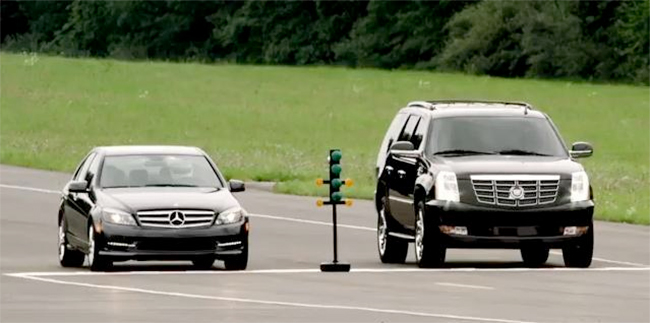Many people will cite safety as the reason for choosing to buy an SUV. Certainly many feel safer in a larger vehicle, and since SUV’s tend to sit higher, you would assume visibility would be better. But are SUVs safer than a traditional car? Here are some interesting, and sometime conflicting, viewpoints.
- Many people will cite safety as the reason for choosing to buy an SUV. Certainly many feel safer in a larger vehicle, and since SUV’s tend to sit higher, you would assume visibility would be better. But are SUVs safer than a traditional car? Here are some interesting, and sometime conflicting, viewpoints.
- According to the non-profit Detroit Project however, the death rate of occupants in crashes (per million) SUVs on our roadways is about 6 percentage points higher than the death rate compared to (per million) cars. They state occupants died in larger vehicle SUVs 8 percent more often than those in minivans and higher end midsize cars. In addition, SUV drivers and passengers are more likely to die in a crash involving a rollover.
- Electronic Stability Control (ESC) which has been mandatory in SUVs since 2012 is helping resolve the rollover issue with SUVs. It is important when purchasing a pre-2012 SUV that you research whether or not that particular vehicle has ESC. Most SUV rollovers are caused by what is known as “tripping”, where the wheels hit a low object on the roadway like a guardrail or curb.
- The Detroit Project also points out that smaller vehicles are more stable and nimble than SUVs, and can react more quickly to impending trouble.
Common sense would dictate that a larger, heavier vehicle would perform better against a smaller lighter vehicle in a crash. How much safer drivers and occupants are in an SUV seems to still be up for debate. The fact is everyone should look at safety ratings, use seat belts and use defensive driving techniques in whatever vehicle they drive. The impact a driver has on the safety of himself and his passengers is far greater than the style of vehicle he is driving.

 Live Chat
Live Chat






